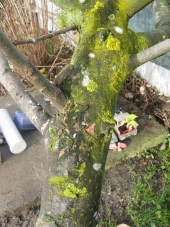
 2
2




The wishbone never could replace the backbone.




The wishbone never could replace the backbone.
 2
2




Canberra Permaculture - My Blog - Wild Cheesemaking - Aquaponics - Korean Natural Farming
 2
2








The wishbone never could replace the backbone.
 4
4




The wishbone never could replace the backbone.
 1
1




Striving to grow things as naturally, simply, and cheaply as possible! 
My YouTube channel
 1
1




 2
2




Russell Apotheker wrote:Not sure if pears can be susceptible to scab but we have a few apple trees that suffer from scab and have some fruit that looks just like this. We've been able to manage with foliar sprays of nettle, burdock and fish emulsion.
The wishbone never could replace the backbone.
 1
1




Zone 6, 45 inches precipitation, hard clay soil





|
this is supposed to be a surprise, but it smells like a tiny ad:
Learn Permaculture through a little hard work
https://wheaton-labs.com/bootcamp
|



